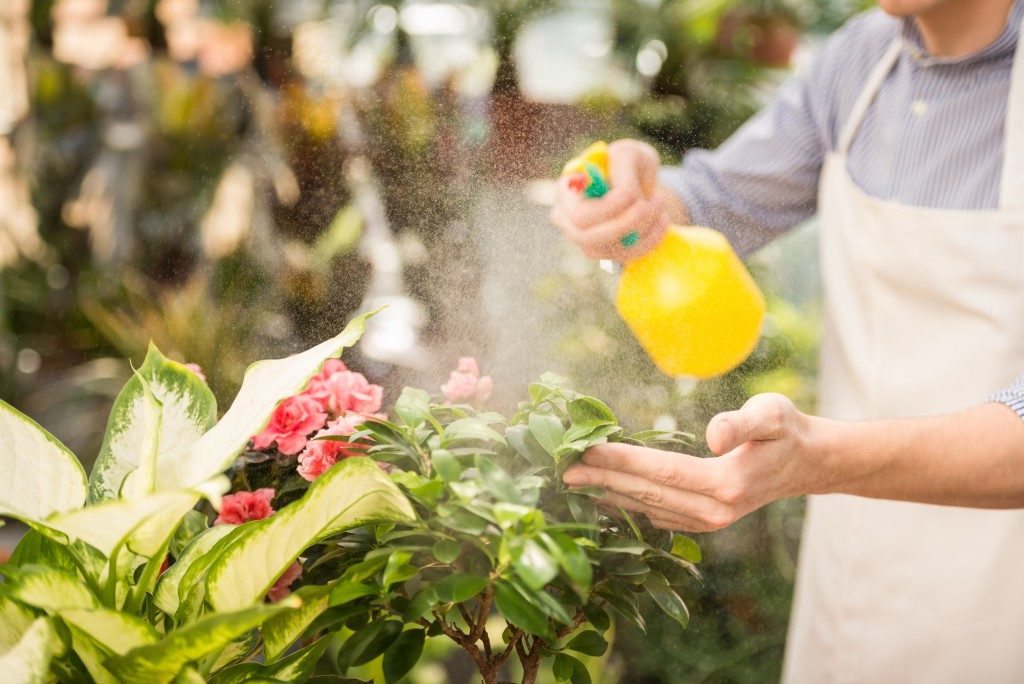One of the downsides to keeping a garden room healthy is that it provides a conducive environment for pests and insects to live and breed. Even if a garden room is an enclosed space, pests can easily find their way inside through holes and small gaps. While there are many ways to keep insects and pests at bay, some of them use chemicals that may be harmful to both humans and the environment. Fortunately, there are now eco-friendly pest control methods that garden room owners may consider to keep insects from harming their precious plants.
Eco-friendly Pest Control Methods
Prevention
The safest and most natural way to prevent pest infestation is to discourage insects from going inside the garden room. Some of the ways to keep pests away are the following:
- Pulling away and disposing weak or infected plants
- Removing debris and weeds that pests can use as habitat
- Sterilizing gardening tools before using them on another plant
- Watering plants early to keep foliage dry for most of the day
- Making sure that there is no standing water in cups, jugs, or puddles
- Cleaning the garden room regularly
Beneficial Insects
Not all insects are pests. Some insects are actually used in garden pest control, preying on pests that eat and damage plants. Common examples of beneficial insects are ladybugs, praying mantis, and ground beetles. These insects feed on pests such as aphids, caterpillars, and roaches. Certain herbs and flowers will attract beneficial insects, including cilantro, fennel, geraniums, and dandelions.
Low Temperature
Pests aren’t fans of cold temperature so one way of getting rid of them completely is by freezing them, including their eggs and larvae to death. This can be done without causing damage to plants as they can withstand the “short winter”.
Mesh Screens
Flying pests such as roaches, whiteflies, hornets, and moths can get inside a garden room through air vents. Setting up mesh screens on air ventilation facilities will prevent these flying pest from invading the garden room.
Organic Pesticides
Unlike chemical insecticides, organic pesticides target a specific organism so they don’t kill off everything in their path. Organic pesticides don’t leave a strong smell as well so people will not be at risk of inhaling chemical-laced air. Sticky traps and homemade sprays with ingredients such as garlic, cayenne, or pennyroyal diluted in water are some examples of organic pesticides.
Benefits of Eco-Friendly Pest Control
Reduce Carbon Footprint
 Chemical pesticides may be effective in getting rid of pests but they often have harmful effects on the environment, including pets, soil, and water. Organic pesticides use food or plant-based oils as active ingredients, which are less damaging to the environment because they release less greenhouse gases to the atmosphere.
Chemical pesticides may be effective in getting rid of pests but they often have harmful effects on the environment, including pets, soil, and water. Organic pesticides use food or plant-based oils as active ingredients, which are less damaging to the environment because they release less greenhouse gases to the atmosphere.
Less Pest Resistance
Pests develop a resistance to chemical pesticides over time. If pests are not killed off by a particular chemical, they are likely to pass on traits that make them resistant onto the next generation. There will come a time when the majority of the pest population will be resistant to that particular chemical. On the other hand, organic pesticides are biologically based instead of artificially created, making the chances of pests developing resistance relatively low.
Pest control is an important part of maintaining a healthy indoor garden. As mentioned above, using eco-friendly techniques to manage pests in a garden room is a better alternative to using chemical pesticides as they are kinder to the environment and safer to humans and animals.

